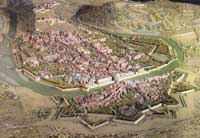Some quick and general comments (thru ch 21)
I haven't had much time for reading while away (and I'm still away). I just wanted to comment on the show versus tell thing. I know this conversations been had in various forums, and some of you have been part of it, so this isn't exactly a new and stunning observation, but I'm finding that Stendhal's "show" is minimal and "tell" pretty extreme. Those events we traditionally think of as moving the plot forward happen in the blink of an eye, but the characters analyze them to death in their heads. For example, when one of the Renal sons is seriously ill and Mme freaks out, I had to review these pages to be sure precisely what happened.
Then there's the letters. Stendhal's treatment of the episode seems so opposite to what we (as a mature, postmodern reading audience) have come to expect.
Sorry for not going into more detail, but I'm short on time.
I'd love to hear from the rest of you on that last section before moving forward. Do you think the relationship between Julien and Mme has evolved any? What do you think of M de Renal's show of character in response to the letters?
Then there's the letters. Stendhal's treatment of the episode seems so opposite to what we (as a mature, postmodern reading audience) have come to expect.
Sorry for not going into more detail, but I'm short on time.
I'd love to hear from the rest of you on that last section before moving forward. Do you think the relationship between Julien and Mme has evolved any? What do you think of M de Renal's show of character in response to the letters?


